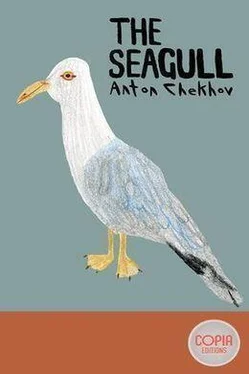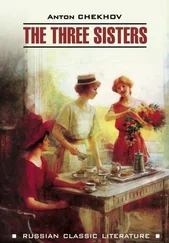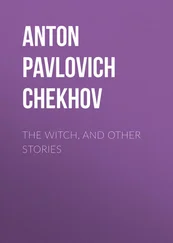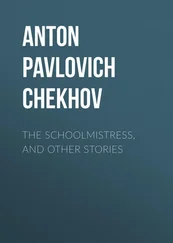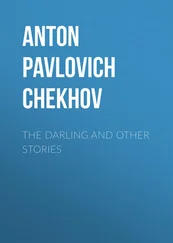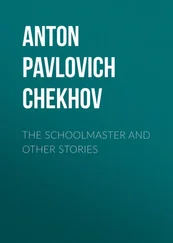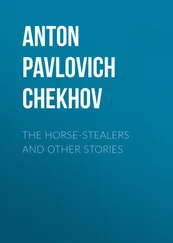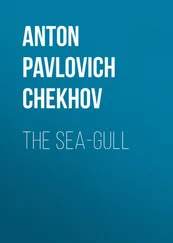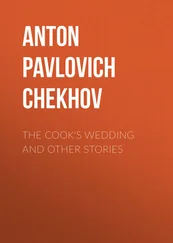Anton Chekhov - The Seagull
Здесь есть возможность читать онлайн «Anton Chekhov - The Seagull» весь текст электронной книги совершенно бесплатно (целиком полную версию без сокращений). В некоторых случаях можно слушать аудио, скачать через торрент в формате fb2 и присутствует краткое содержание. Год выпуска: 2014, Издательство: epubBooks Classics, Жанр: Драматургия, на английском языке. Описание произведения, (предисловие) а так же отзывы посетителей доступны на портале библиотеки ЛибКат.
- Название:The Seagull
- Автор:
- Издательство:epubBooks Classics
- Жанр:
- Год:2014
- ISBN:нет данных
- Рейтинг книги:3 / 5. Голосов: 1
-
Избранное:Добавить в избранное
- Отзывы:
-
Ваша оценка:
- 60
- 1
- 2
- 3
- 4
- 5
The Seagull: краткое содержание, описание и аннотация
Предлагаем к чтению аннотацию, описание, краткое содержание или предисловие (зависит от того, что написал сам автор книги «The Seagull»). Если вы не нашли необходимую информацию о книге — напишите в комментариях, мы постараемся отыскать её.
The Seagull — читать онлайн бесплатно полную книгу (весь текст) целиком
Ниже представлен текст книги, разбитый по страницам. Система сохранения места последней прочитанной страницы, позволяет с удобством читать онлайн бесплатно книгу «The Seagull», без необходимости каждый раз заново искать на чём Вы остановились. Поставьте закладку, и сможете в любой момент перейти на страницу, на которой закончили чтение.
Интервал:
Закладка:
DORN. I am fifty–five years old. It is too late now for me to change my ways of living.
PAULINA. I know that you refuse me because there are other women who are near to you, and you cannot take everybody. I understand. Excuse me—I see I am only bothering you.
NINA is seen near the house picking a bunch of flowers.
DORN. No, it is all right.
PAULINA. I am tortured by jealousy. Of course you are a doctor and cannot escape from women. I understand.
DORN. [TO NINA, who comes toward him] How are things in there?
NINA. Madame Arkadina is crying, and Sorin is having an attack of asthma.
DORN. Let us go and give them both some camomile tea.
NINA. [Hands him the bunch of flowers] Here are some flowers for you.
DORN. Thank you. [He goes into the house.]
PAULINA. [Following him] What pretty flowers! [As they reach the house she says in a low voice] Give me those flowers! Give them to me!
DORN hands her the flowers; she tears them to pieces and flings them away. They both go into the house.
NINA. [Alone] How strange to see a famous actress weeping, and for such a trifle! Is it not strange, too, that a famous author should sit fishing all day? He is the idol of the public, the papers are full of him, his photograph is for sale everywhere, his works have been translated into many foreign languages, and yet he is overjoyed if he catches a couple of minnows. I always thought famous people were distant and proud; I thought they despised the common crowd which exalts riches and birth, and avenged themselves on it by dazzling it with the inextinguishable honour and glory of their fame. But here I see them weeping and playing cards and flying into passions like everybody else.
TREPLIEFF comes in without a hat on, carrying a gun and a dead seagull.
TREPLIEFF. Are you alone here?
NINA. Yes.
TREPLIEFF lays the sea–gull at her feet.
NINA. What do you mean by this?
TREPLIEFF. I was base enough to–day to kill this gull. I lay it at your feet.
NINA. What is happening to you? [She picks up the gull and stands looking at it.]
TREPLIEFF. [After a pause] So shall I soon end my own life.
NINA. You have changed so that I fail to recognise you.
TREPLIEFF. Yes, I have changed since the time when I ceased to recognise you. You have failed me; your look is cold; you do not like to have me near you.
NINA. You have grown so irritable lately, and you talk so darkly and symbolically that you must forgive me if I fail to follow you. I am too simple to understand you.
TREPLIEFF. All this began when my play failed so dismally. A woman never can forgive failure. I have burnt the manuscript to the last page. Oh, if you could only fathom my unhappiness! Your estrangement is to me terrible, incredible; it is as if I had suddenly waked to find this lake dried up and sunk into the earth. You say you are too simple to understand me; but, oh, what is there to understand? You disliked my play, you have no faith in my powers, you already think of me as commonplace and worthless, as many are. [Stamping his foot] How well I can understand your feelings! And that understanding is to me like a dagger in the brain. May it be accursed, together with my stupidity, which sucks my life–blood like a snake! [He sees TRIGORIN, who approaches reading a book] There comes real genius, striding along like another Hamlet, and with a book, too. [Mockingly] "Words, words, words." You feel the warmth of that sun already, you smile, your eyes melt and glow liquid in its rays. I shall not disturb you. [He goes out.]
TRIGORIN. [Making notes in his book] Takes snuff and drinks vodka; always wears black dresses; is loved by a schoolteacher—
NINA. How do you do?
TRIGORIN. How are you, Miss Nina? Owing to an unforeseen development of circumstances, it seems that we are leaving here today. You and I shall probably never see each other again, and I am sorry for it. I seldom meet a young and pretty girl now; I can hardly remember how it feels to be nineteen, and the young girls in my books are seldom living characters. I should like to change places with you, if but for an hour, to look out at the world through your eyes, and so find out what sort of a little person you are.
NINA. And I should like to change places with you.
TRIGORIN. Why?
NINA. To find out how a famous genius feels. What is it like to be famous? What sensations does it give you?
TRIGORIN. What sensations? I don't believe it gives any. [Thoughtfully] Either you exaggerate my fame, or else, if it exists, all I can say is that one simply doesn't feel fame in any way.
NINA. But when you read about yourself in the papers?
TRIGORIN. If the critics praise me, I am happy; if they condemn me, I am out of sorts for the next two days.
NINA. This is a wonderful world. If you only knew how I envy you! Men are born to different destinies. Some dully drag a weary, useless life behind them, lost in the crowd, unhappy, while to one out of a million, as to you, for instance, comes a bright destiny full of interest and meaning. You are lucky.
TRIGORIN. I, lucky? [He shrugs his shoulders] H–m—I hear you talking about fame, and happiness, and bright destinies, and those fine words of yours mean as much to me—forgive my saying so—as sweetmeats do, which I never eat. You are very young, and very kind.
NINA. Your life is beautiful.
TRIGORIN. I see nothing especially lovely about it. [He looks at his watch] Excuse me, I must go at once, and begin writing again. I am in a hurry. [He laughs] You have stepped on my pet corn, as they say, and I am getting excited, and a little cross. Let us discuss this bright and beautiful life of mine, though. [After a few moments' thought] Violent obsessions sometimes lay hold of a man: he may, for instance, think day and night of nothing but the moon. I have such a moon. Day and night I am held in the grip of one besetting thought, to write, write, write! Hardly have I finished one book than something urges me to write another, and then a third, and then a fourth—I write ceaselessly. I am, as it were, on a treadmill. I hurry for ever from one story to another, and can't help myself. Do you see anything bright and beautiful in that? Oh, it is a wild life! Even now, thrilled as I am by talking to you, I do not forget for an instant that an unfinished story is awaiting me. My eye falls on that cloud there, which has the shape of a grand piano; I instantly make a mental note that I must remember to mention in my story a cloud floating by that looked like a grand piano. I smell heliotrope; I mutter to myself: a sickly smell, the colour worn by widows; I must remember that in writing my next description of a summer evening. I catch an idea in every sentence of yours or of my own, and hasten to lock all these treasures in my literary store–room, thinking that some day they may be useful to me. As soon as I stop working I rush off to the theatre or go fishing, in the hope that I may find oblivion there, but no! Some new subject for a story is sure to come rolling through my brain like an iron cannonball. I hear my desk calling, and have to go back to it and begin to write, write, write, once more. And so it goes for everlasting. I cannot escape myself, though I feel that I am consuming my life. To prepare the honey I feed to unknown crowds, I am doomed to brush the bloom from my dearest flowers, to tear them from their stems, and trample the roots that bore them under foot. Am I not a madman? Should I not be treated by those who know me as one mentally diseased? Yet it is always the same, same old story, till I begin to think that all this praise and admiration must be a deception, that I am being hoodwinked because they know I am crazy, and I sometimes tremble lest I should be grabbed from behind and whisked off to a lunatic asylum. The best years of my youth were made one continual agony for me by my writing. A young author, especially if at first he does not make a success, feels clumsy, ill–at–ease, and superfluous in the world. His nerves are all on edge and stretched to the point of breaking; he is irresistibly attracted to literary and artistic people, and hovers about them unknown and unnoticed, fearing to look them bravely in the eye, like a man with a passion for gambling, whose money is all gone. I did not know my readers, but for some reason I imagined they were distrustful and unfriendly; I was mortally afraid of the public, and when my first play appeared, it seemed to me as if all the dark eyes in the audience were looking at it with enmity, and all the blue ones with cold indifference. Oh, how terrible it was! What agony!
Читать дальшеИнтервал:
Закладка:
Похожие книги на «The Seagull»
Представляем Вашему вниманию похожие книги на «The Seagull» списком для выбора. Мы отобрали схожую по названию и смыслу литературу в надежде предоставить читателям больше вариантов отыскать новые, интересные, ещё непрочитанные произведения.
Обсуждение, отзывы о книге «The Seagull» и просто собственные мнения читателей. Оставьте ваши комментарии, напишите, что Вы думаете о произведении, его смысле или главных героях. Укажите что конкретно понравилось, а что нет, и почему Вы так считаете.
